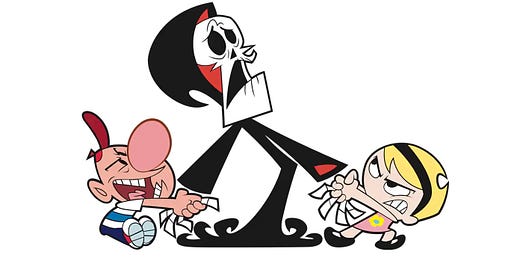Ego is NOT the enemy
Some thoughts and reflection after many rabbit holes into ego and consciousness.
A book that I hold near and dear is Ryan Holliday’s Ego is the Enemy. It’s an amazing introduction to learning about ego (our sense of individualism) and how it forms as we grow up. He explores how attaching too much to our ego actually disconnects us from others and living authentically.
While finishing the book didn’t nearly leave me enlightened, it did open my eyes to the ways ego came up in my life.
It started by noticing this sense of urgency and anxiousness that’s almost always on the back of my mind. Whether it’s at work or even out with friends, I can easily get in my head and be taken out of the present moment. I never really thought much of it though because honestly this was just the norm for me.
Over time, however, I better understood how this feeling of constant urgency is actually part of my ego that formed growing up. I was most validated when working hard and putting pressure on myself, so I conditioned myself to always be super competitive. It’s what feels most safe for me. While this part of me was helpful (debatably) in school and starting my career, it’s unnecessarily carried into other parts of my life from friendships to alone time.
And the more I recognized it, the more I felt that ego really is the enemy.
I grew quite frustrated and wanted to learn how to overcome this part of me. I’m a big advocate for therapy, journaling, and meditation, but at times it still felt like I was losing a war to my ever-running, silly mind.
Except there was something core missing from my healing altogether: self-compassion. What I didn’t accept was that no matter what my inner critic, over-thinker, anxious thoughts are all parts of me. And to fight them is to fight myself. Thinking of my ego as the enemy is actually just a form of self-abandonment.
In reality, our egos actually play an instrumental role in our lives. Last year I got introduced to a new modality of self-therapy called IFS (Internal-family systems). It explains how instead of thinking of ego as one inner-voice, it’s seen as many different parts of an internal-family (or sub-personalities). None are necessarily good or bad- they all form as we grow up to better try to fit into the confusing world around us.
No matter how extreme and misguided these voices can be, they’re all coming from an honest intention of wanting to help you.
And just like having a conversation with a stubborn or difficult person, you can’t fight fire with fire. Instead you need to build trust and empathy towards each part to let them feel safe to give you back control.
What’s been most helpful for me in anxious situations is to actually write out each of the different parts that are present and how they’re feeling. I’ll then respond to them individually as if I’m giving advice to close friends. Separating them out and validating each of their concerns has allowed me to start humanizing my insecurities, fears, and utter confusion of life (ha).
It’s definitely not easy, but I’m working on building more capacity for whatever arises- not passing judgment, wanting to change, or feeling resentful for the not-so-fun parts of me.
And slowly but surely the more space and compassion I give my inner-family, the more my guard has come down to finally become present. To be myself.


